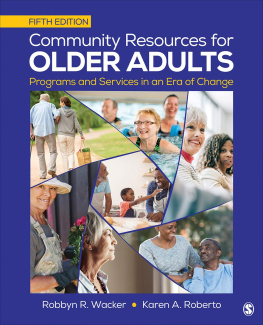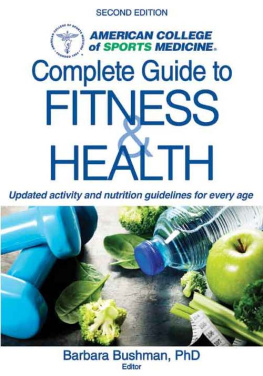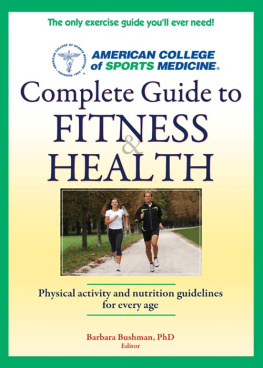Almost everyone complains at times about forgetting an important name, idea, or event. For many younger adults, such failures may be frustrating but are often chalked up to a busy lifestyle or a forgetful personality. As we age, however, many people begin to blame aging itself for such forgetfulness. In the worst case, even healthy adults may become worried that they are showing the effects of getting older, and they may even fear that forgetting is an early sign of dementia. Even if such concerns are unfounded, it is true that as we grow older, learning and retrieving information typically become more challenging. Difficulties remembering needed information can be frustrating, because many contexts require that we learn, retain, and retrieve information to accomplish our goals. Some examples include remembering medical information or a new schedule for taking medications, learning names and procedures required to perform a new job or volunteer work, or even learning facts that are essential for enjoying a variety of past times such as the names of birds for bird watching or the roster of the local franchise for spectator sports.
Fortunately, numerous approaches are available to help improve peoples memory and retention. Techniques to enhance learning and remembering have a range in their ease of use and overall efficacy. In this chapter, we highlight some strategies that are especially promising. To overview our chapter, we first consider some of the literature on how memory can be improved or trained. We pay special attention to the ultimate challenge of how skills or strategies that are trained can transfer to situations or contexts that differ from the training context. Although our chapter is written for a practitioner who may be seeking to improve his or her clients memory, the strategies and ideas described herein can easily be adapted by anyone who is trying to overcome memory challenges.
Discovering the Magic Pill for Memory Rejuvenation
It would be great if just one thing were needed to ensure that people achieve their memory goals regardless of what memory obstacle they are trying to overcome. Are there any magic pills available to boost peoples memory regardless of what they are trying to learn and remember? An older adults wish list might include a painless dietary supplement, an easy-to-use memorization strategy that one simply had not heard about, or a lifestyle change that would restore memory function to what it was at age 20. Like Ponce de Leons Fountain of Youth, the much-hoped for dietary supplement that restores memory has never been found. Although some dietary strategies for supporting cognitive health appear more promising than others (see ). There is at least some encouraging news, however, regarding cognitive and life-style interventions. Recent research involving recollection training and physical-fitness training has shown considerable promise for improving memory in old age. We briefly touch on this new wave of training research at the end of this chapter. Before doing so, we consider a critical issue in evaluating the effectiveness of an intervention: its breadth of transfer.
One critical aspect of this issue pertains specifically to the degree to which the benefits of a specific intervention such as a cognitive mnemonic or a lifestyle change will be broadly beneficial across a wide variety of tasks. In the context of intervention research, psychologists refer to the issue as involving the breadth of transfer of a trained skill to untrained contexts. For example, if one learns a specific memorization technique (often called a mnemonic), can this technique be effective for memorizing widely different kinds of information? Unfortunately, over 100 years of research have demonstrated that transfer is rather limited. Instead, people receive the greatest benefits of an intervention on only those tasks that the intervention was specifically devised to improve. In their chapters, Boot and Blakely () also address the transfer issue.
To get a sense of the transfer problem, consider the ambitious work by Ball et al. ().
Even worse, numerous studies show that when older adults are trained to use a memory strategy for a specific kind of material (e.g., one is trained to organize words on a list to boost memory), this training does not transfer to other kinds of material (e.g., learning a list of paired associates). One difficulty in achieving transfer in such situations is that people may not realize that skills trained in one task can be adapted for use on other tasks.
In a recent study, Cavallini, Dunlosky, Bottiroli, Hertzog, and Vecchi () trained older adults to use simple mnemonics (e.g., imagery, which is described in detail below); during training, the older adults practiced the mnemonics while learning paired associates and single words. When later asked to learn text materials, these older adults showed no improvement over their original baseline performance. By contrast, another group of older adults received the same mnemonic training, but they also were instructed how the mnemonics could be applied to other (nonpracticed) tasks. Although the application of the mnemonics to text learning was never mentioned, older adults in this transfer-instruction group did show significant increases in the learning of text materials after training. Even so, transfer was not found for all the uninstructed tasks. These results imply that individuals may not think carefully about how to perform in a task context, so that explicit instructions to do so may lead to a better use of available, appropriate strategies. Nevertheless, explicit instructions to consider these issues do not ensure widespread transfer.
One additional constraint is that many strategies devised to improve memory do not work well for all kinds of to-be-learned material. For instance, organizing a list of words into meaningful categories works well for remembering word lists, such as groceries to buy at a store, but would not be useful for learning the names of new acquaintances. So, the bad news is that, even for cognitive interventions, no magic pills are available to boost peoples learning and remembering across all possible tasks and situations (for a recent review reporting preliminary evidence that extensive training can produce transfer, see Zelinski, ). Instead, efforts must focus on building a larger repertoire of strategies and skills that can enhance memory and on training that will help an individual decide what strategy will help him or her most in a specific situation. In the next section, we describe some popular strategies that can be easily employed to improve learning and remembering specific tasks.

![Hartman-Stein Paula E. Enhancing Cognitive Fitness in Adults [recurso electrónico]: A Guide to the Use and Development of Community-Based Programs](/uploads/posts/book/212245/thumbs/hartman-stein-paula-e-enhancing-cognitive.jpg)


![Lee - Python Programming Fundamentals [recurso electrónico]](/uploads/posts/book/214321/thumbs/lee-python-programming-fundamentals-recurso.jpg)
![Bhattacharya S K. - Epidemiological and Molecular Aspects on Cholera [recurso electrónico]](/uploads/posts/book/205862/thumbs/bhattacharya-s-k-epidemiological-and-molecular.jpg)
![Dębicki Krzysztof - Queues and Lévy Fluctuation Theory [recurso electrónico] $c](/uploads/posts/book/193156/thumbs/d-bicki-krzysztof-queues-and-l-vy-fluctuation.jpg)



![Gilles Dowek - Introduction to the Theory of Programming Languages [recurso electrónico]](/uploads/posts/book/137340/thumbs/gilles-dowek-introduction-to-the-theory-of.jpg)
